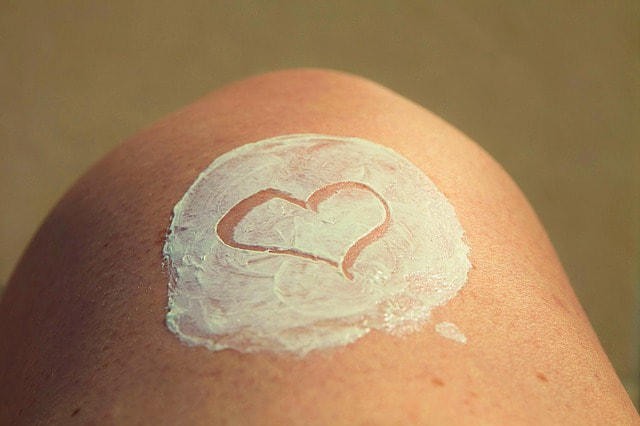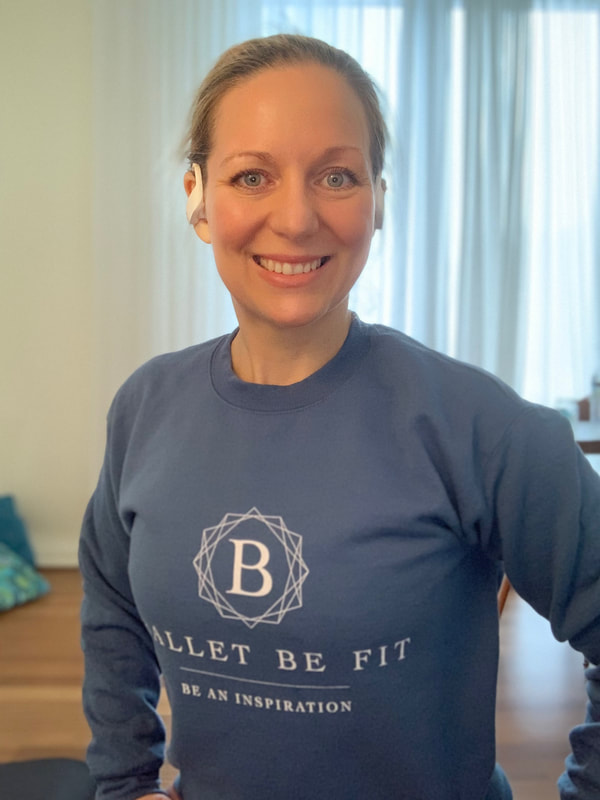|
Happy Monday,
Given the current weather we're experiencing in the Northern hemisphere whether in the US, Europe or Asia I found it rather beFITting to bring about the topic of Natural Sunscreen. Shot straight from the cuff in between sessions this afternoon... Depending on your skin type, your body will produce between 1,000 and 10,000 international units (IUs) of vitamin D when exposed to 30 minutes of the mid-day sun. This is important because vitamin D deficiency has been linked to weak bones, insomnia, mood disorders, hormonal imbalances and more. But too much of anything can be bad, and sun exposure is no exception. Sun Exposure and Skin Cancer According to the American Academy of Dermatology (AAD), skin cancer is the single most common type of cancer, with roughly one in five Americans developing it at some point during their life. A leading contributing factor of skin cancer is sun exposure. Sunlight contains ultraviolet (UV) rays that penetrate the skin and promote abnormal cell growth. Statistics show that up to 90 percent of all non-melanoma skin cancers involve prolonged exposure to the sun. Sunlight is actually a form of radiation. The Earth's geomagnetic field filters some of this radiation but not all of it. As a result, some solar radiation penetrates through the atmosphere while exposing us and everything else on this planet to UV light. There are ways to protect your sun from solar radiation, however, including the use of natural sunscreen lotion. Choose Your Sunscreen Lotion Carefully It may sound contradictory, but some sunscreen lotions may actually increase your risk of skin cancer. Many store-bought sunscreen products, for instance, contain nano particles of zinc oxide. Zinc oxide itself isn't necessarily bad; it's actually an effective compound for blocking solar radiation. When processed for sunscreen lotion, though, companies often create a fine chalk-like powder of zinc oxide consisting of 100nm or smaller particles. The zinc oxide particles are so small that they absorb into your skin. The precise effects of nano-sized zinc oxide remains unknown, but some health experts believe it's a contributing factor in skin cancer. Once absorbed by the body, they disturb cellular growth and function. This has prompted many health-conscious individuals to seek a safer alternative form of sun protection. What Is Natural Sunscreen Lotion? Natural sunscreen lotion is made using safe, natural ingredients. Coconut oil, for example, is a common ingredient found in natural sunscreen lotion. Extracted from mature coconuts, this all-natural ingredient contains a sun protection factor (SPF) of 5. It also contains antioxidants to strengthen the skin and protect against oxidative stress. Furthermore, coconut oil has anti-inflammatory properties, making it particularly beneficial for people suffering from chronic inflammatory skin conditions like eczema. Shea butter is another common ingredient used in natural sunscreen lotion. Extracted from the nuts of the shea tree, it contains high concentrations of fatty acids, including oleic acid, stearic acid and palmitic acid. The high fat content of shea butter makes it an excellent moisturizing cream or lotion. Additionally, shea butter has natural sun-blocking properties, keeping your skin safe from UV rays. Some natural sunscreen lotions also contain zinc oxide but in larger particles. Zinc oxide is found in the Earth's crust. Normally, it doesn't pose any risk to our health. If it's processed into nano-sized particles, though, some experts believe it increases the risk of skin cancer. When choosing a natural sunscreen lotion, consider the types of UV light it blocks. All sunscreen lotion is designed to block the sun's UV rays. With that said, there are two specific types of UV sunlight: UVA and UVB. UVA rays are primarily responsible for sunburns whereas UVB rays are responsible for skin aging, wrinkles and fine lines. Additionally, they are both associated with an increased risk of skin cancer. Some sunscreen products only protect against UVB rays, leaving your skin susceptible to UVA. A broad-spectrum sunscreen lotion, however, is formulated to protect against both types of solar radiation. Other Tips to Protect Your Skin from Sun Damage Wearing natural sunscreen lotion is just one way to protect your skin from sun damage. You can also cover your skin and limit the time you spend outdoors. By following some simple steps, you'll promote healthier, more youthful skin. And of course remember to always cover your skin in the sun, wear a hat, shades and don't forget to put some of that protective lotion on your ears & top of your feet as those are more exposed than we think. Lastly avoid the sun between 11am - 4pm as those are the most dangerous hours of the day. Look after yourself, I want you to be healthy, to be happy. Laugh Everyday! Sweat Everyday! Coach StephB
0 Comments
 Since the age of about 14 I have dipped in and out of various "meat free" nutrition strategies aka diets... I tried the vegetarian, pescatarian, vegan you name it I tested them. Several reasons behind my experiments: first I suffered a lot from eczema and various allergies, then of course my eating disorder didn't help but also because as I traveled the world I encountered so many different cultures that don't eat meat that I also wanted to understand their approach too. To be honest I am a firm believer on variety and that certain food groups work well with a "less is more" approach. More on that another day :) To be honest my husband and I are plant based 90% of the time, we do have fish & eggs once a week and we have a good steak every 4-6 weeks, we link it back to our training cycle. However this winter I got terribly sick, it was beyond a bad flue: I was training for 2 spring marathons (Paris & London), New York was getting weekly snow storms, temperatures were below freezing, we had just gotten a new puppy that required miles and miles of walks several times a day and on top of that my full time job as a trainer & coach...I was broken, beyond fatigued, my body & soul were aching. Then I thought to myself "are the demands I am putting on my body requiring more from my nutrition? should I be re-introducing red meat more frequently?" and so I ate a New York strip steak and instantly, like over night my energy came back up and I was on top of my game again...until a week a two later and boom, I crashed. So eventually I decided I just needed to add more meat more frequently on a weekly basis. It was awesome, my energy levels were back up. Fast forwards a few months when summer finally peaked it's nose the truth hit me in the face: I had gained over 10lbs!!! Shocking!! Particularly given my weight had stabilized itself since 2014. The only thing that had changed in my nutrition was the extra meat I had been eating. So I went back to my plant based eating habits and there it was: I started de-bloating and the weight is just slipping off. There are many amazing benefits of eating a plant-based diet rather than consuming animal sourced foods. So here below you have it all: the five benefits from beginning a vegan diet lifestyle. 1. A Reduced Risk of Developing Heart Disease Animal-based foods have more fat, especially saturated fats that damage the heart, arteries and blood vessels. You can see how much fat is in butter, cheese and meat by reading the labels on the products that you buy at the supermarket. When you stop consuming meat and other animal-based foods, you will stop ingesting high levels of saturated fat that cause strokes and heart attacks. 2. Increasing Your Level of Antioxidants By eating more plant-based foods, you are increasing the amount of antioxidants that you consume. Antioxidants are nutrients that are in the outer covering and flesh of bright or dark fruits and vegetables. This nutrient fights against the free radicals that are in your body’s cells, helping to prevent some types of cancer. When you are shopping for groceries, choose produce such as dark leafy greens, red tomatoes and orange bell peppers. 3. Protecting Your Body’s Liver When you consume animal-based products, your liver must work harder to remove the toxins from the meat and other processed foods. If your liver is damaged by cleansing the toxins from your bloodstream, then you can develop liver disease. In some cases, your liver will stop working, and without a functioning liver, your other organs will stop working, leading to death. 4. Maintaining a Healthy Blood Glucose Level A vegan diet that contains a lot of plant-based protein and fiber can help you maintain a healthy blood glucose level. Plant-based foods that contain a lot of protein include lentils, almonds and tofu. By consuming less saturated fat, you will reduce your cholesterol level, helping your body to regulate your blood sugar naturally. 5. Lose Weight With a Vegan Diet Plan Butter, meat and cheese contain numerous calories, and in many cases, you will eat large portions of animal-based foods, leading to excess weight. A vegan diet plan can lead to rapid weight loss because fruits, vegetables and grains are lower in fat. With a plant-based diet, you will feel satiated from the fiber, helping you to consume smaller portions at each meal. If you want to lose weight while also getting these additional benefits, you may want to consider a vegan diet, but my top recommendation would be to get 1:1 personal consultation. And I know you're burning to find out: yes I have gone back to my plant based nutrition habits BUT I am still going to include a little meat & fish as the demands I put on my body just need a little extra support every now and again. We are all unique and respond to programs differently, so why not email me [email protected] to schedule your FREE first discovery call and we can discuss what would work best for your based on YOUR lifestyle & YOUR goals. Have a beautiful day, Coach StephB ps: grab a copy of my Guide 10 Steps to leaner & healthier you AKA 10 steps to beFITbeFAB your life by clicking here: |
Meet
|




 RSS Feed
RSS Feed